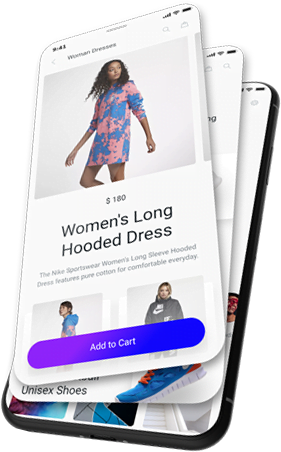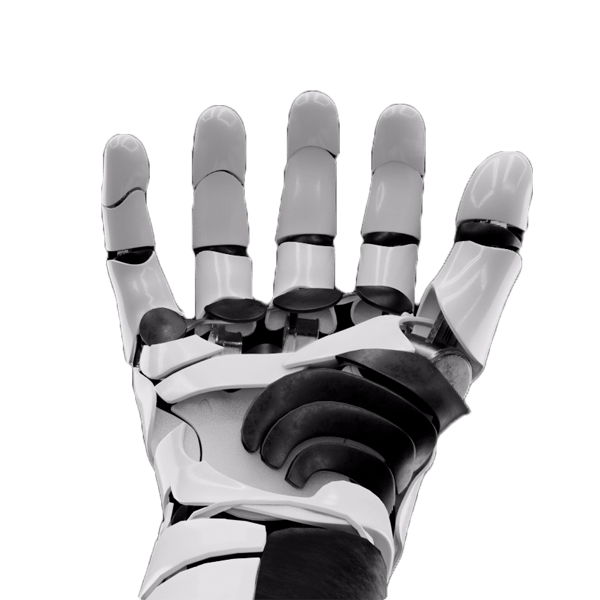Do you feel the accelerating pulse of transformation? The era of Artificial Intelligence is not a distant dystopia, but a palpable reality redefining marketing here and now, and with it, the very soul of your profession. The choice is no longer if AI will impact your role, but how you will respond: you will either become an orchestrator of intelligent systems, or your professional path will undergo a profound, often painful, transformation. AI is automating the routine and exponentially elevating the value of what is essentially human, propelling the AI in marketing market to an astonishing $217.33 billion by 2034. This tide is not a devastating flood, but a current pushing towards a new shore, where technological fluency and emotional intelligence are the new compasses.
Here are the essential coordinates for navigating this inescapable shift:
- Cultivate a hybrid role: Master the orchestration of AI tools while enhancing intrinsically human skills like empathy and strategic thinking.
- Prioritize ethics: Become a guardian of transparency, ensuring AI outputs are fair and unbiased.
- Transform data into narrative: Shift from mere collection to the strategic interpretation of AI-generated insights.
- Invest in yourself: AI literacy and prompt engineering are not options; they are the new standard for professional relevance.
- Lead with humanity: Foster roles that thrive on genuine connection, cultural understanding, and complex problem-solving.
Do you want to build your future on this new shore? Let’s connect at Infinite Stair LLC.
The Inevitable Tide: The Dawn of AI in Marketing
To truly grasp the seismic shifts rippling through the professional world, one must first recognize AI not merely as a technological advancement, but as a fundamental force reshaping global economies and labor markets. Its rapid advancements, particularly in generative AI (GenAI) since late 2022, have dramatically accelerated its integration into business processes. This acceleration, which has seen investment in generative AI soar nearly eight times the initial figures since ChatGPT’s launch, underscores the profound and systemic changes AI is poised to bring. Unlike previous industrial revolutions, AI uniquely excels at cognitive, non-routine tasks typically performed by office-based workers, such as research, analysis, content creation, and data synthesis. This deep penetration into intellectual labor marks a significant departure from historical automation waves that primarily impacted manual work. Indeed, the imperative to adapt is clear: 92% of companies plan to increase their AI investments over the next three years, signifying AI’s undeniable and evolving presence in how marketing is conceived, developed, and delivered.
Beyond the Fear: The Reality of Labor Transformation
Amidst the chorus of alarmist headlines predicting widespread job displacement, it’s crucial to anchor our understanding in a more nuanced reality. The World Economic Forum (WEF), for instance, offers a compelling counter-narrative, projecting that by 2030, while 92 million jobs may be displaced globally, an even larger number, 170 million new roles, are expected to be created, resulting in a net increase of 78 million jobs. This suggests a profound evolution of the workforce rather than a net reduction in opportunities, with overall job disruption anticipated to affect approximately 22% of jobs by 2030. Further insights from McKinsey project that by the same year, 30% of current U.S. jobs could be fully automated, with 60% significantly altered by AI tools. While Statista presents a more conservative outlook, suggesting a net loss of 14 million jobs over a shorter five-year timeframe (83 million lost versus 69 million created) , the prevailing sentiment among employers is proactive adaptation: a staggering 77% of employers globally plan to upskill their workers in response to AI’s influence. This commitment hints at a redeployment of human capital to higher-value, more strategic, or interpersonally complex activities, as job functions are redefined by AI.
The current market further underscores this evolutionary, rather than revolutionary, impact. The Economist, in its May 26, 2025, article “Why AI hasn’t taken your job,” observes that despite the hype, the real impact of AI on the labor market has been very limited. Employment in “vulnerable” sectors like administrative services and accounting shows no significant decline, and has even seen a slight increase over the last year. Furthermore, The Economist highlights that real wages have continued to rise in the U.S., Europe, and Japan, directly contradicting the narrative of AI depressing incomes. This economic resilience is accompanied by substantial productivity gains driven by AI; revenue growth per employee in AI-exposed industries like tech and telecom has surged by 27% since 2022, significantly outpacing the 8.5% growth seen in less AI-ready sectors. Crucially, workers possessing advanced AI skills are already commanding a significant premium, with wages rising more than twice as fast (16.7% vs 7.9%) in industries most exposed to AI, and a 56% wage premium for AI-skilled workers last year alone. This intricate tapestry of data paints a clear picture: AI is not merely replacing, but recalibrating value, pushing us towards a future where human ingenuity, augmented by technology, finds new avenues for impact and growth.
The Human Soul: Resilient Skills in the Age of the Algorithm
As the tides of AI reshape the professional world, a profound truth emerges: the very aspects of our humanity that once seemed distinct from the efficiency of machines are now becoming our most invaluable assets. AI, acting as a “co-pilot” or “assistant”, effectively automates repetitive, time-consuming tasks, liberating human professionals to concentrate on “higher-value, more strategic activities”. We see this vividly in practice: software developers with AI access reported a 12% increase in core coding activities and a 25% reduction in project management and administrative work. Creative teams leveraging AI have witnessed a remarkable 40% increase in productivity, as the machine handles the mundane, allowing human expertise to shine in conceptual development and storytelling. This isn’t just about efficiency; it’s about job satisfaction: 81% of workers using AI reported improved productivity, alongside a 22% higher overall job satisfaction compared to non-users. The market echoes this shift, with AI driving a 55% greater change in the skills requested by employers in AI-exposed professions. AI literacy, effective prompt engineering, and a deep understanding of AI’s capabilities are no longer optional; they are indispensable. As Christina Inge of Harvard Division of Continuing Education wisely states, “Your job won’t be taken by AI, but by someone using AI”.
To truly navigate this future, cultivating these uniquely human strengths becomes paramount. If you’re seeking to understand how to leverage AI to amplify your professional impact and solidify your strategic advantage in this evolving landscape, know that expert guidance is available. We at Infinite Stair LLC are dedicated to helping professionals and businesses master the art of this human-AI synergy, transforming challenges into growth opportunities.
The Shadow of Progress: Navigating AI’s Ethical Dilemmas
Yet, the rapid expansion of AI, particularly its generative capabilities, casts a long shadow, demanding a rigorous navigation of crucial ethical dilemmas. A primary concern revolves around the potential for AI models, often trained on vast internet datasets, to perpetuate and even amplify societal biases present in their training data. This can result in distorted, inaccurate, or discriminatory outputs, particularly impacting underrepresented groups. Consequently, human oversight is crucial to identify and mitigate these biases, ensuring fairness and ethical outcomes. Another significant ethical and legal issue pertains to copyright and ownership, as AI models are often trained on existing content without explicit consent from original creators. This has already led to lawsuits and raised complex questions about intellectual property rights for AI-generated content. Furthermore, the reliance of AI systems on massive data gathering raises concerns about data privacy and security, especially when dealing with sensitive information. There is also the risk of over-reliance on AI, which could potentially diminish human creativity and lead to generic, uninspired content lacking authenticity and emotional depth. This increasing prevalence of AI necessitates the emergence of “ethical gatekeepers” within various workflows, underscoring that human judgment and a strong moral compass are indispensable in this new landscape.
The Perilous Currents: High-Vulnerability Marketing Professions
As AI’s capabilities sharpen, certain marketing domains find themselves directly in its path, their core tasks ripe for automation. This doesn’t necessarily mean outright elimination, but a profound redefinition where the routine yields to the algorithmic. In Marketing & Advertising generally, AI is automating vast dataset analysis and identifying market trends. It excels in generating content like blog posts and ad copies, optimizing campaigns in real-time, and scaling hyper-personalization. This signifies a shift where marketers become orchestrators, guiding AI in execution rather than performing every task manually.
However, some roles face a particularly high current of disruption:
- Graphic Design (Advertising Focus): This area is highly susceptible due to AI’s rapid advancements in image generation and editing. AI tools can generate stunning images, creative text effects, and vibrant color palettes, producing over 100 mockups per hour. Tasks like layout generation and template adaptation are significantly streamlined. The World Economic Forum has even identified graphic design as the 11th fastest-declining job category.
- Copywriter: AI’s proficiency in drafting various forms of marketing copy presents a significant impact. Tools can generate basic content such as blog posts, product descriptions, and social media captions in seconds. AI also optimizes copy for SEO and readability, and quickly generates multiple variations for A/B testing.
- Video Editor for Social Media: This role is undergoing drastic changes as AI automates many manual and repetitive tasks. AI handles basic editing, color correction, rotoscoping, and even script writing and B-roll insertion, shifting the human role towards AI supervision and strategic content development.
These roles, heavily reliant on the generation, manipulation, or optimization of digital content, are where AI’s efficiency is most pronounced, demanding a strategic pivot for professionals seeking long-term relevance.
The Anchor of Resilience: Human-Centric Marketing
Amidst the swirling currents of automation, certain marketing professions stand as beacons of resilience, their value anchored in uniquely human attributes that AI, for all its power, cannot replicate. These are the roles where empathy, strategic depth, and genuine connection become not just assets, but irreplaceable differentiators.
- Consumer Psychology/Behavioral Economics: This field remains profoundly human. It relies on interpreting the complex, often irrational nuances of human behavior, cognitive biases, and emotional drivers. While AI analyzes data to predict actions, the why behind human behavior, the design of ethical interventions, and the qualitative research to uncover unspoken motivations remain uniquely human domains.
- Brand Management: Building and maintaining a brand’s identity, values, and reputation is an art rooted in human intuition and cultural understanding. AI assists in monitoring, but the core tasks of crafting authentic narratives, managing crises with empathy, and fostering genuine human connections are irreplaceable. The human brand manager acts as an “ethical gatekeeper,” ensuring messaging is inclusive and responsible.
- Communication & Public Relations: Despite AI’s ability to automate content drafting and media monitoring, the essence of PR lies in building and nurturing strategic media relationships, interpreting subtle cultural nuances, and providing empathetic, nuanced responses during crises. The human touch in crafting compelling narratives and managing complex stakeholder interactions is paramount.
- Community Manager: While AI automates routine engagement and moderation, the core function of fostering genuine human connection, mediating conflicts, and cultivating a vibrant community culture requires empathy and nuanced social intelligence that AI lacks.
- Influencer Marketing Coordinator: This role’s resilience is built on authentic relationship-building with influencers and their communities. While AI can identify influencers and manage logistics, the strategic vision, negotiation of complex partnerships, and crisis management demand human connection and judgment.
These professions are the bastions of human ingenuity, where the intricate dance of emotion, strategy, and connection will continue to define success in the AI era.
The Art of Adaptation: Strategies for Marketing’s Future
The evolving landscape of marketing demands not just observation, but proactive adaptation. For individuals and organizations alike, the path forward is clear: a commitment to continuous learning, strategic investment, and a profound embrace of human-AI synergy.
For professionals, the imperative is to cultivate a T-shaped skill set, deep expertise in human-centric domains (the vertical bar) coupled with broad AI tool fluency (the horizontal bar). This means:
- Embrace AI Literacy and Prompt Engineering: The ability to effectively interact with AI tools, understand their capabilities and limitations, and craft precise prompts to achieve desired outcomes will be a fundamental skill across all roles.
- Cultivate Strategic and Critical Thinking: As AI automates routine tasks, the demand for high-level strategic thinking, problem-solving, and decision-making will intensify. Professionals must develop the capacity to interpret AI-generated insights and formulate overarching strategies.
- Amplify Emotional Intelligence and Interpersonal Skills: Roles requiring empathy, persuasion, negotiation, and the ability to build genuine human relationships will become increasingly valuable.
- Develop Ethical Judgment and Bias Mitigation: With AI’s potential to perpetuate biases and raise privacy concerns, professionals must become “ethical gatekeepers”. This involves understanding AI ethics and scrutinizing AI outputs for fairness.
- Foster Creativity and Innovation: While AI can generate ideas, human creativity remains essential for originality, emotional depth, and pushing boundaries.
For organizations, the strategic imperative is equally profound:
- Invest in AI Literacy and Training Programs: Companies must provide comprehensive training on AI tools, their applications, and ethical considerations for all marketing and related staff. This investment not only boosts productivity but also increases employee satisfaction.
- Redefine Job Roles for Augmentation: Organizations should shift employees from “operator” roles to “supervisor” roles, where they oversee AI outputs, inject human judgment, and focus on strategic tasks. This approach maximizes output and maintains quality.
- Build Robust Data Infrastructure: To effectively train and deploy AI models, companies must invest in clear, labeled examples of high-quality work, which is foundational for AI’s utility within an organization.
- Foster a Culture of Experimentation and Adaptation: Encouraging teams to experiment with new AI tools and approaches is crucial in a rapidly evolving technological landscape.
- Reinvest Time Savings into High-ROI Activities: The time saved by AI automation should be strategically reinvested into high-value activities such as deeper customer insights and enhanced personalization, rather than simply reducing headcount. This ensures long-term growth and competitive advantage.
Ultimately, the future of marketing work is not one of replacement, but of profound amplification. It is predicted that AI will lead to a 35% gain in productivity for augmented teams.
Conclusion: Future-Proofing Design in the AI Era
The analysis unequivocally demonstrates that artificial intelligence is not merely an incremental technological advancement but a profound force reshaping the very fabric of marketing-related professions and trades. Over the next five to ten years, AI will continue to revolutionize workflows, augment human capabilities, and redefine the skills required for success. The pervasive nature of AI means that virtually no job will remain untouched, transitioning from a focus on manual execution to one of strategic oversight and human-AI collaboration. The global labor market is projected to experience a net increase in jobs by 2030, with new roles emerging as AI streamlines existing processes and creates new opportunities.
The findings highlight a clear distinction in vulnerability: roles heavily reliant on repetitive, data-intensive, or formulaic content generation and manipulation face the highest immediate risk of disruption. Professions such as Graphic Design (focused on advertising), Digital Ad Designer, Copywriter, and Video Editor for Social Media are poised for significant transformation, as AI tools become increasingly adept at automating their core tasks. For these roles, survival and growth will depend on a rapid shift towards strategic creative direction, nuanced human understanding, and mastery of AI as a powerful co-creator.
Conversely, professions that demand deep human intuition, complex strategic thinking, emotional intelligence, and ethical judgment are positioned to be most future-proof. Consumer Psychology or Behavioral Economics, Brand Management, and Communication & Public Relations exemplify this resilience. These fields thrive on understanding the intricacies of human behavior, building authentic relationships, and navigating complex ethical landscapes, qualities that AI cannot replicate. Even within highly automatable domains, roles like Performance Marketing Analyst and Web Analytics Operator will remain vital, provided they evolve to focus on interpreting AI-generated insights, designing sophisticated experiments, and communicating strategic implications.The overarching imperative for both professionals and organizations is proactive adaptation. For individuals, this means a relentless commitment to upskilling in AI literacy, prompt engineering, and cultivating uniquely human attributes such as critical thinking, creativity, and emotional intelligence. For organizations, it necessitates strategic workforce planning, substantial investment in AI training, and the establishment of robust ethical AI governance frameworks. The future of marketing is not one where humans are replaced by machines, but rather one where human ingenuity, amplified by AI, unlocks unprecedented levels of productivity, personalization, and strategic impact. Those who embrace this symbiotic future will be the architects of innovation and the leaders in the evolving digital economy.
References
Why AI hasn’t taken your job, The Economist
AI Will Shape the Future of Marketing, Harvard Division of Continuing Education (Blog)
AI & the Future of Work, World Economic Forum (WEF)
Managing the risks and returns of intelligent automation, McKinsey & Company





